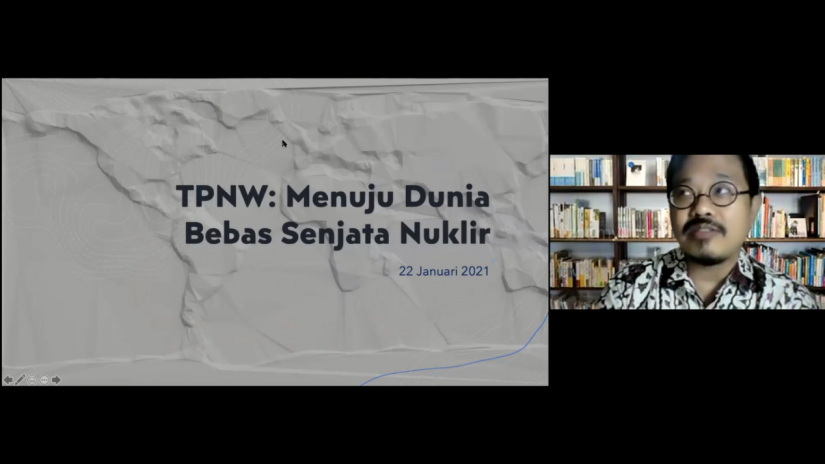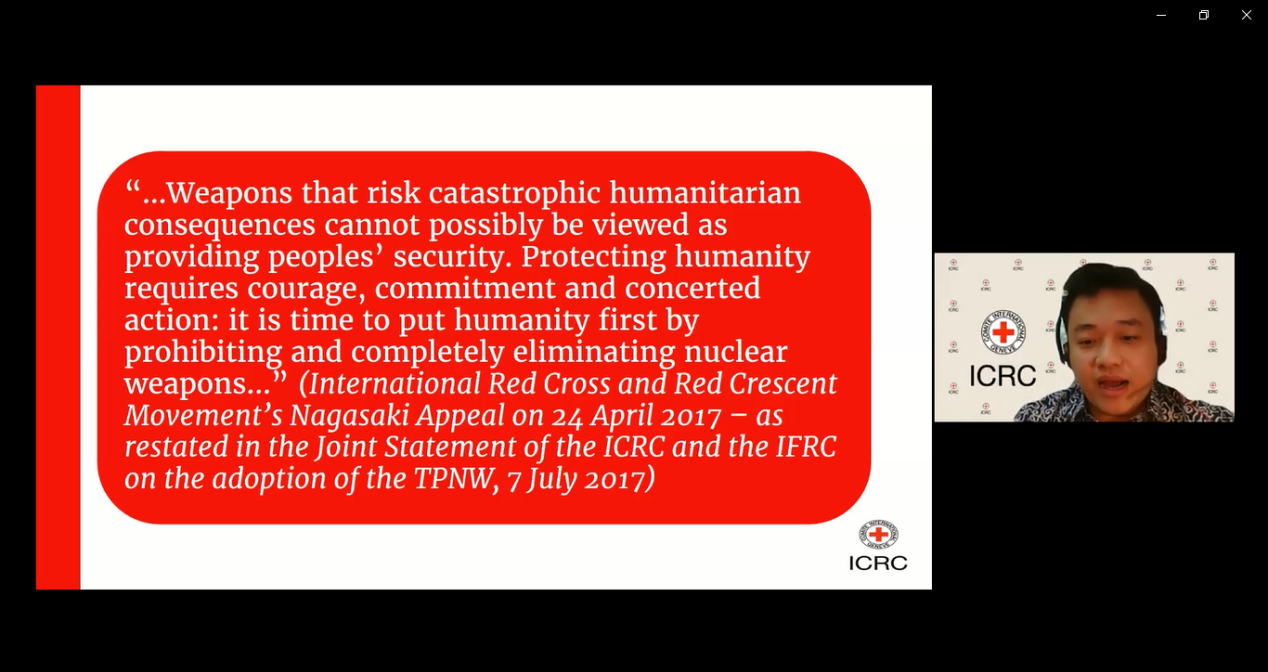

In Indonesia, nuclear weapons are against Indonesia’s principles of creating world peace, so Indonesia is actively involved in various activities in the context of nuclear disarmament. This is what Ricky Ichsan, Coordinator of the Directorate of International Security and Disarmament (KIPS) Functions at the Ministry of Foreign Affairs of Indonesia explained in his presentation session. The presence of the TPNW which is in line with Indonesia’s commitment to Pancasila and the 1945 Constitution also has the full support of Indonesia–a sense of Indonesian ownership of this treaty emerges. Regarding the ratification itself, in his explanation, Ricky said that Indonesia is currently undergoing a process of socialization to academics and policy makers, and is currently forming a committee to draft laws that are in line with TPNW.
The last material session was delivered by Muhadi Sugiono, a lecturer of International Relations of UGM and Member of the ICAN Campaign Team. Broadly speaking, Muhadi delivered an analysis of international relations, especially international politics, by looking at the current position and significance of the TPNW. As a revolutionary endeavor, TPNW has succeeded in countering previous agreements which, unfortunately, still recognize nuclear weapons ‘legally’ because they allow five countries to retain their possession. TPNW has become a pressure for countries with nuclear weapons to immediately disarm and eliminate these dangerous weapons. Even so, Muhadi explained that the impact of TPNW itself cannot be felt directly and in the short term, it still needs a long process until finally the impact of the TPNW can be felt. Indonesia, as one of the countries that signed the TPNW, has a moral obligation not to make policies that conflict with TPNW. In addition to material sessions and question-and-answer discussions, this webinar also broadcasted a collection of videos of the #SelamatTinggalSenjataNuklir campaign from various circles. Video collection has been carried out long ago by IIS UGM in collaboration with ICAN in order to celebrate the implementation of TPNW.
